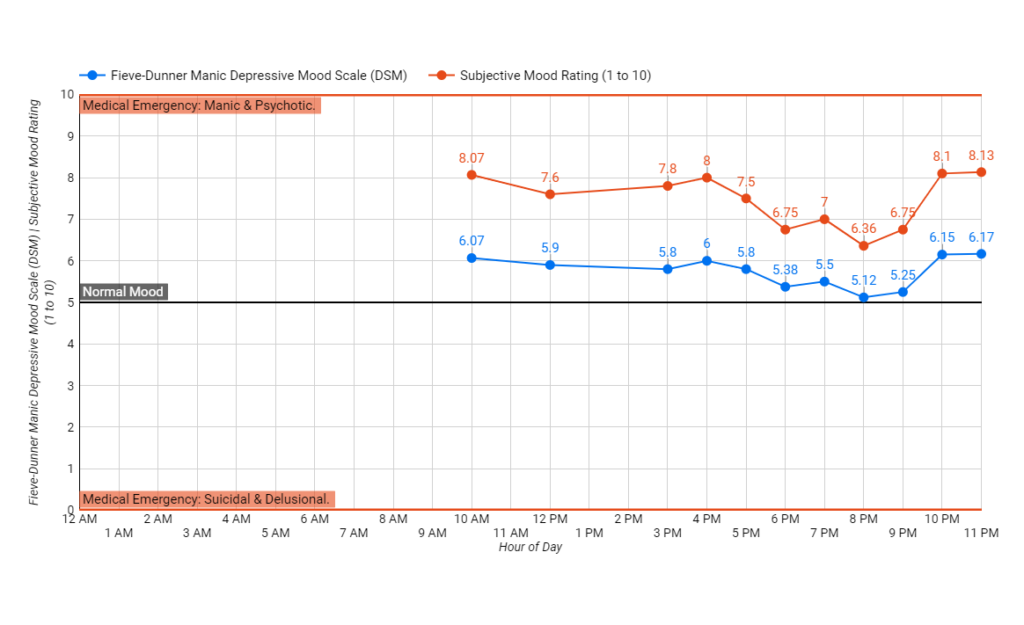Fieve-Dunner Manic Depressive Mood Scale (From Moodswing by Ronald R Fieve, MD)
Use this scale to track your monthly and yearly mood patterns on the enclosed chart. Try to fill out one chart each month. If possible, ask your nurse or physician to fill one out too so that you can compare notes. Once you learn what your mood patterns are, you may be able to prevent episodes from happening.
100 – Medical emergency:
Wildly manic and psychotic; can’t stop talking, incoherent, overactive, belligerent, or elated. Not sleeping at all. At times, delusional; hallucinating. May be either violent or paranoid.
90 – Extreme elation:
So that patient can’t rate self; in need of more medication and control. Completely uncooperative.
80 – Severe elation:
Should be admitted, or if in a hospital usually want to sign out of ward. Sleeping very little, hostile when crossed; loss of control. Needs medication.
70 – Moderate elation:
Over activity and talkativeness: irritable and annoyed. Needs only four to six hour’s sleep. Socially inappropriate; wants to control. Doctors have advised outpatient treatment.
60 – Mildly elevated mood:
Many ideas for new projects: occasionally mildly obtrusive. If creative, the energy is highly useful. Hyperperceptive. Feels wonderful, on top of the world. Increased sexual drive; wants to spend money and travel. Treatment may be contraindicated or not needed.
50 – Mood
Is within normal range (45-55).
40 – Mildly depressed mood:
Noticeable lack of energy; chronic lack of optimism and pleasure. Feels slowed down. Treatment may not be desired, although it may be indicated. Decreased interest in sex. Decreased motivation.
30 – Moderate depression:
Lack of energy; disinterested in others; early weight gain or loss, sleep and appetite disturbance; able to function with effort but wants to stay in bed during day. Doesn’t want to go to work; feels life is not worthwhile. Little sexual interest. Outpatient treatment advised by doctors.
20 – Severe depression:
Takes care of daily routine but needs prodding and reminding; loss or gain of weight; sleep disorder is serious. Volunteers suicidal feelings; very withdrawn, may be paranoid.
10 – Extreme depression:
Actively suicidal, totally withdrawn or extremely agitated. Difficulty rating self on mood scale.
0 – Medical emergency:
Unable to eat or take medication; can’t follow ward routine, delusional; suicidal. Stuporous, stares into space; very little response on questioning, May require tube feeding.



